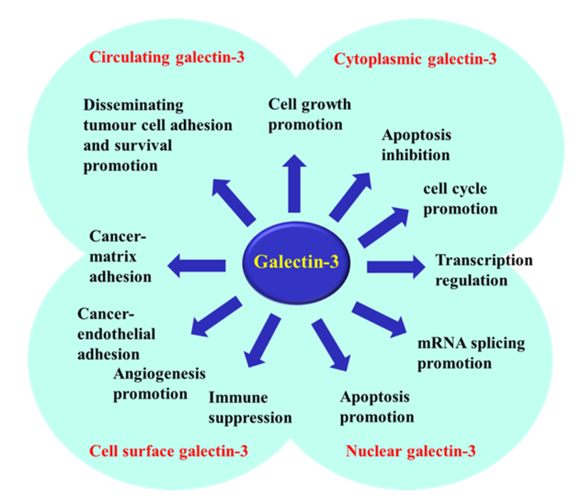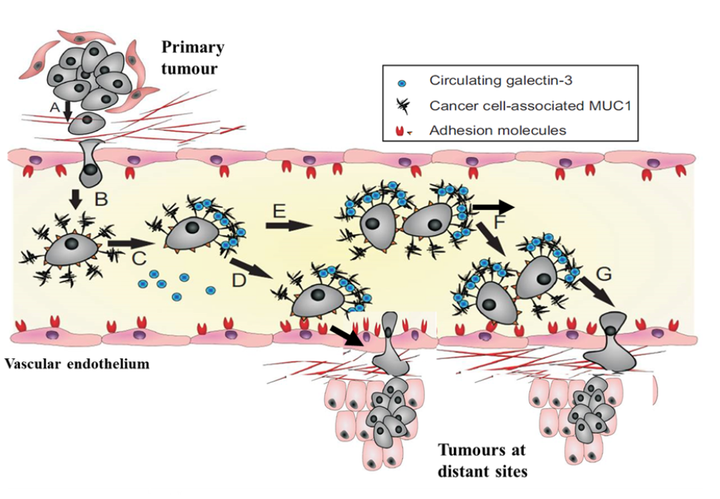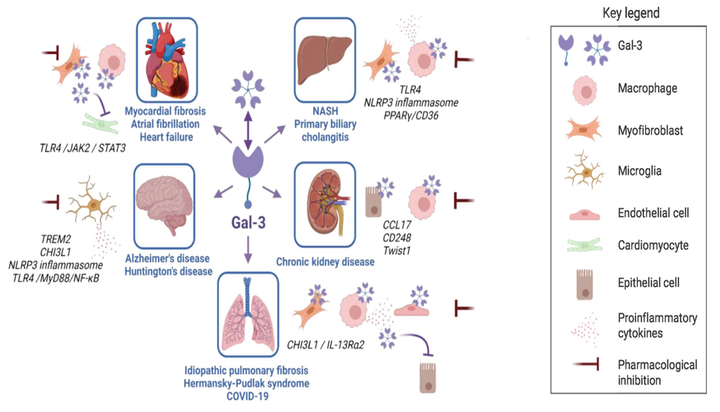Galectin-3 is a carbohydrate-binding protein and a multi-mode promoter of the progression, severity of morbidity and scale of mortality in cancer, tissue fibrosis and inflammation.
Galytx has the unique advantage of a portfolio of first in class, non-carbohydrate, wholly synthetic small molecule inhibitors of Galectin-3. This underpins the Galytx ability to generate a pipeline of therapeutics with options of administration route, pharmacokinetics and safety profiles commensurate with the clinical requirements associated with the treatment of a range of pathologies associated with the overexpression of this highly promising therapeutic target.
An advantage of galectin-3 targeted therapy is that not only the molecular mechanisms of galectin-3 actions in a number of clinical indications are well characterised, but there is also growing evidence of the association of galectin-3 with treatment resistance in chemotherapy and immunotherapy in cancer. An improvement in efficacy and reduction in adverse effects of these therapies are therefore expected when they are used in combination with a galectin-3 inhibitor.
Cancer progression and spread
Over-expression/secretion of galectin-3 is a common feature in cancer and pre-cancerous conditions. More and more evidence has revealed that galectin-3 overexpression is an important promoter to several critical steps in cancer development, progression and metastasis, e.g. in tumour cell growth, adhesion, invasion, angiogenesis, immune suppression and spreading (Figures 1 and 2). Galectin-3 does so by multiple molecular mechanisms through binding of its well-defined carbohydrate-recognition domain to multiple galactoside-terminated cell surface glycans and also intracellular proteins.


Fibrotic disease
Chronic fibrosis occurs when an initial injury or series of injuries trigger a constant cycle of inflammation and fibrosis which leads to eventual loss of normal architecture and function of the affected organs. The resulting tissue pathologies of Chronic Heart Failure, Chronic Kidney Disease, Liver Cirrhosis and Idiopathic Pulmonary Fibrosis are collectively responsible for 45% of disease associated deaths. Treatment options to halt or slow the progressive decline of those fibrotic diseases are limited, with clinical intervention being constrained to addressing the symptoms of disease progression.
Galectin-3 plays a critical role in tissue fibrosis through interaction with cell surface glycans on immune cells, fibroblast and epithelial cells, leading to increased secretion of pro-fibrotic factors, and changes of fibroblast cell proliferation and transformation in the target organs. Galectin-3 Inhibitors can reduce pro-fibrotic actions in multiple tissues.

